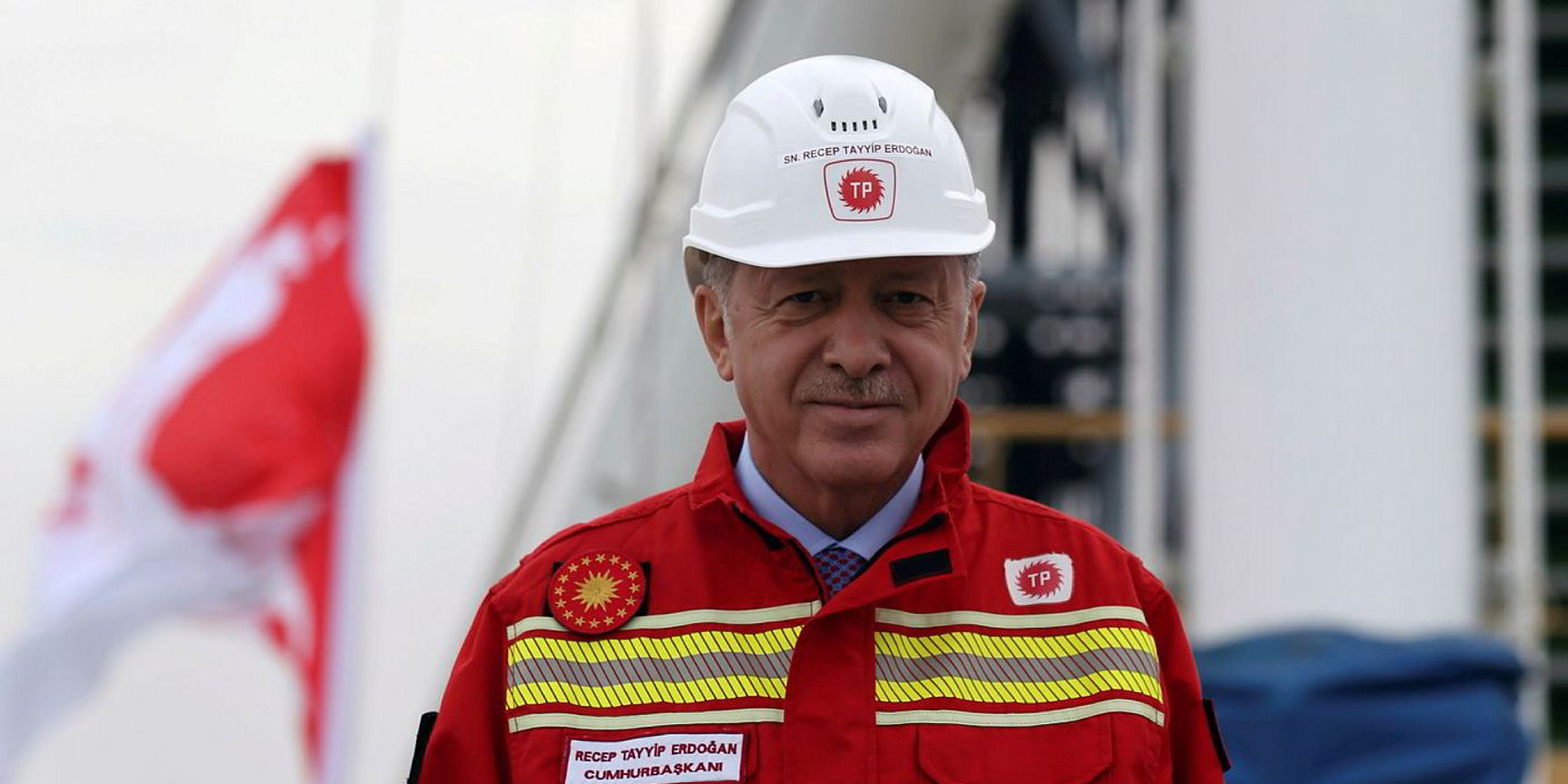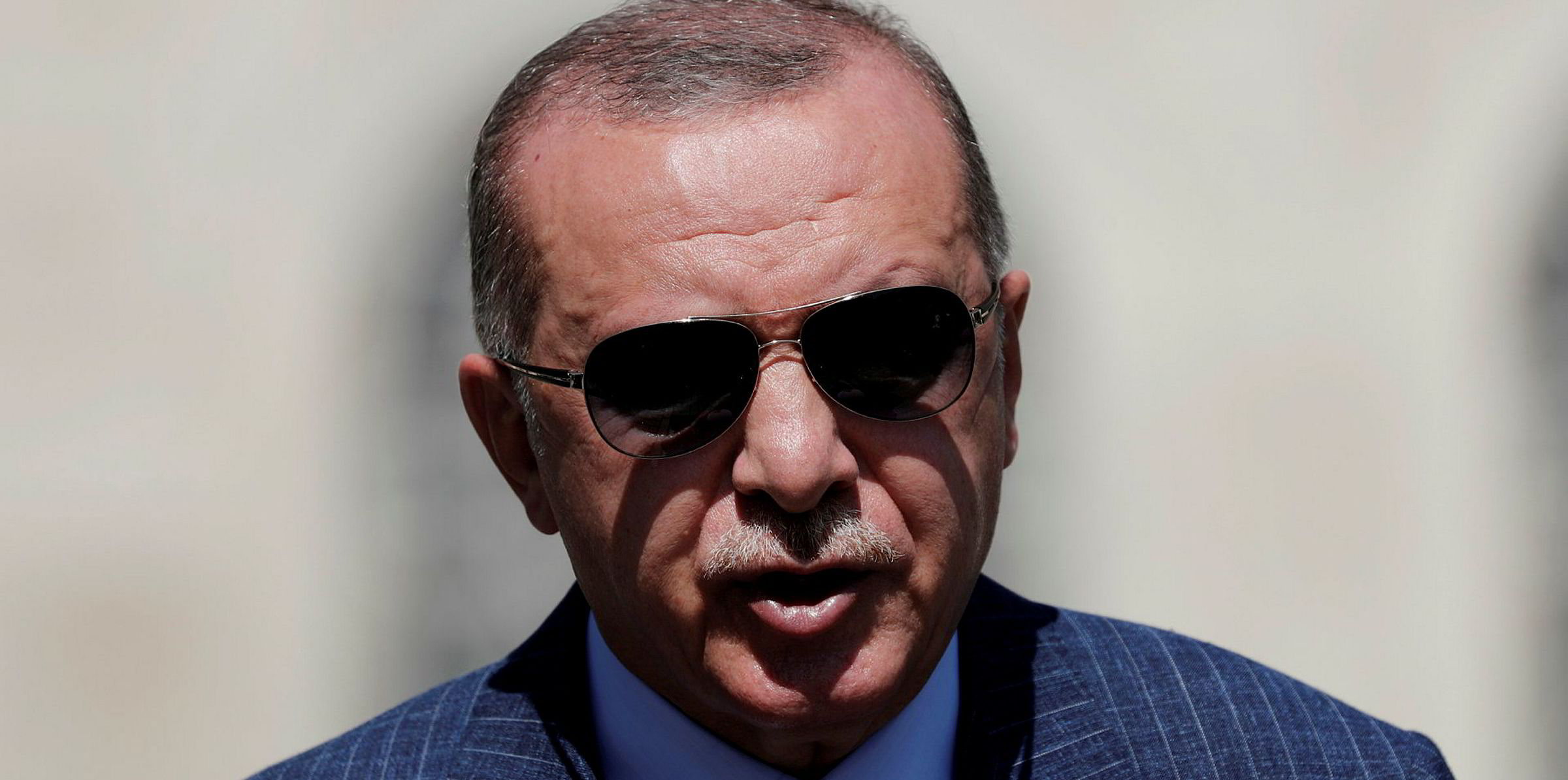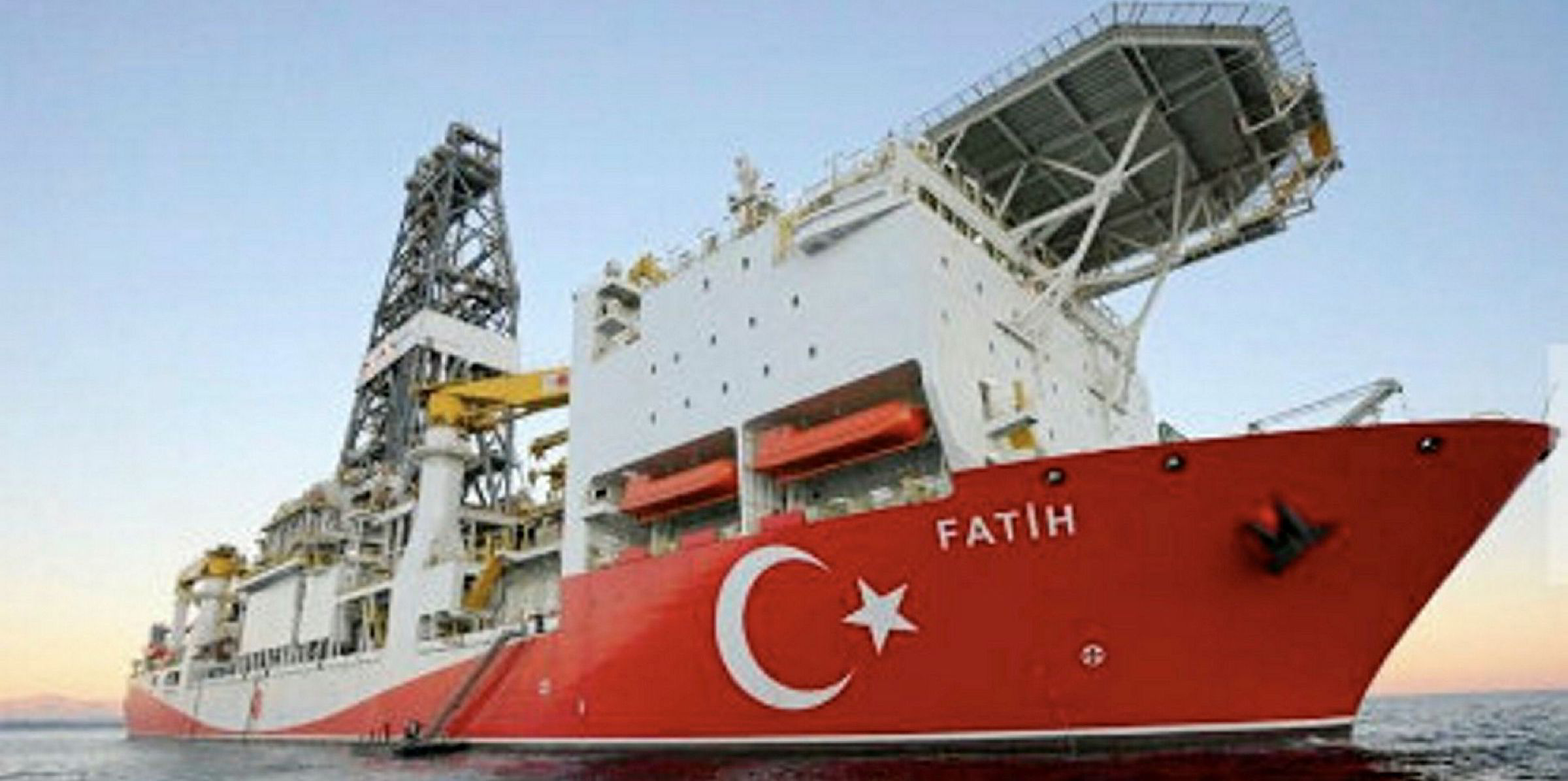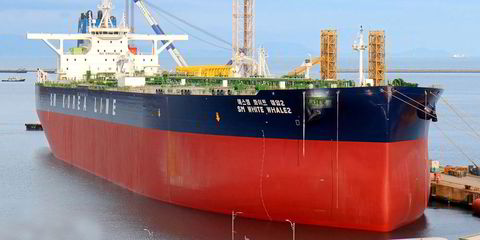Turkish President Recep Tayyip Erdogan has taken to the deck of a drillship in the Black Sea to reveal another discovery of natural gas reserves.
AP reported that the leader told reporters on the 51,000-gt Fatih (built 2011) on Saturday that exploration using the Tuna-1 well had been completed after a depth of 4.77 km was reached.
Additional reserves of 85bn cbm were found.
In August, Turkey announced the discovery of 320bn cbm of gas off the Black Sea coast, a find that energy analysts considered notable but not large enough to turn the country into a regional energy hub.
The government has said it plans to extract and use the gas by 2023, in a bid to reduce imports, which totalled more than $41bn in 2019.
Turkey's drilling in the Mediterranean off the disputed nation of Cyprus has proved more controversial than its Black Sea operations.
"We will continue our search for hydrocarbon resources in the Black Sea and the Mediterranean," Erdogan said on Saturday.
Another Turkish vessel, the 2,300-dwt research ship Oruc Reis (built 2017), reached the disputed waters off Cyprus last week.
Erdogan warned that Turkey would use diplomacy and "all its might" to defend the energy rights of Turkey and Turkish Cypriots.
He added that Fatih would return to drilling next month at the Turkali-1 well and would be joined in the Black Sea by a new Turkish vessel.
Fatih is the former Odfjell Drilling vessel Deepsea Metro II, which cost $668m to order.
Tanker flows to be hit?
Turkish Petroleum Corp bought the ship in 2017 for an undisclosed price.
Gibson Shipbrokers last month raised the possibility that escalating tensions between Greece and Turkey in the Mediterranean could hit tanker cargo flows.
Turkey first sent a drillship to the northern coast of Cyprus in 2019. A third is planned to be mobilised there.
Cyprus has condemned the actions as illegal.






